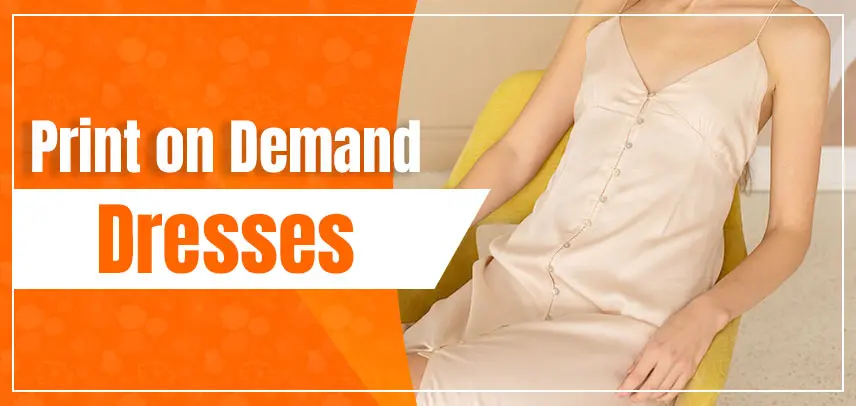B2C vs D2C Marketing: Which One Right for You: Best Examples
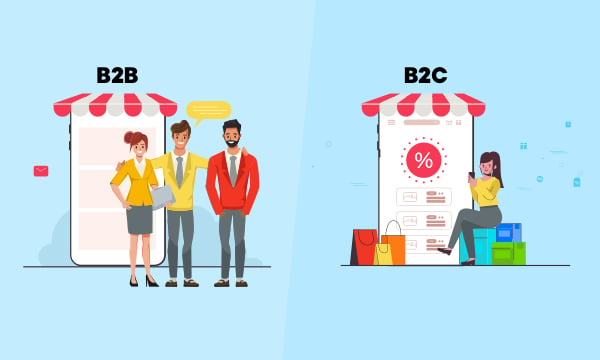
In the context of B2C vs D2C, when comparing these two main types of business models, they become evident, highlighting the differences in targeting consumers and direct brand-consumer relationships. B2C stands for “business to consumer,” and D2C stands for “direct to consumer,”
B2C refers to companies that sell products or services to consumers, while D2C describes companies that directly sell products or services to consumers, eliminating the need for intermediaries.
In this blog post, we will explore the advantages and disadvantages of each business model (B2C vs D2C) to help you determine the most suitable choice for your company.
B2C vs D2C Marketing: Explain
In a nutshell, B2C is a selling model that involves intermediaries like distributors or retailers, while D2C is a selling model where a company sells directly to the customer. The key difference is that B2C requires going through middlemen before reaching the consumer, whereas D2C companies bypass intermediaries and interact directly with customers.
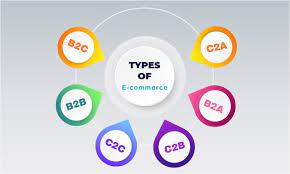
What is B2C Marketing?
Different business models necessitate tailored approaches to B2C marketing. Companies selling physical goods may need to invest in marketing strategies like product demonstrations and securing retail store placements to enhance visibility. Conversely, service-based companies may focus on lead generation and brand awareness campaigns to attract potential customers. Understanding the unique characteristics of the products or services being offered is crucial in developing effective marketing campaigns that align with the target audience and business goals.
What is D2C Marketing?
B2C marketing can be executed through a variety of channels, including online platforms, physical stores, catalogs, and even TV infomercials. By adopting a D2C approach, companies can establish direct relationships with their customers, enabling greater control over branding and communication. Whether a business sells products or services or desires direct customer engagement, D2C marketing can be a suitable strategy to consider.
What is the difference between B2C vs D2C vs B2B?
D2C e-commerce focuses on selling products directly to consumers without intermediaries, while B2C involves transactions between businesses and individual consumers.
- B2B focuses on relationship-building and customized solutions.
- B2C targets the mass market with emotional appeals.
- D2C empowers brands to have direct control and build relationships with consumers.
- Digital sales harness the global reach and data-driven insights of online channels.
B2B refers to business-to-business transactions, where businesses sell products or services to other businesses. B2C refers to business-to-consumer transactions, where businesses sell products or services directly to individual consumers. D2C refers to direct-to-consumer transactions, where companies sell their products or services directly to end customers without involving intermediaries.
Speed and flexibility: B2C vs D2C
In B2C, decision-making and adapting to market changes can be slower due to the involvement of multiple parties in the supply chain.
In D2C, businesses have greater control and can respond more quickly to market trends and customer demands due to the streamlined nature of their operations.
Advantages: B2V vs D2C
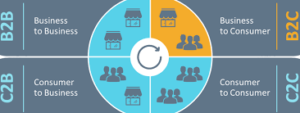
B2C
- Wider reach: B2C businesses can tap into a broader audience by leveraging intermediaries like retailers or distributors to sell their products.
- Lower costs: B2C companies can save on marketing and selling expenses by utilizing intermediaries who assume these costs.
- More established: B2C businesses often possess a stronger brand presence and established reputation compared to D2C companies.
D2C
- Higher margins: D2C businesses can command higher prices for their products as they sell directly to consumers, resulting in potentially higher profit margins.
- Greater control: Selling directly allows businesses to have more control over their products, marketing strategies, and customer interactions.
- More personalization: D2C companies can offer personalized products and services by directly understanding and catering to the needs and preferences of their customers.
Disadvantages: B2C vs D2C
B2C
- Lower margins: B2C businesses may experience lower profit margins due to the need to offer competitive prices when selling through intermediaries.
- Less control: Selling through intermediaries reduces the level of control businesses have over their products, marketing strategies, and customer interactions.
D2C
- Niche audience: D2C businesses often target specific niche audiences since they sell directly to consumers without the broad reach of intermediaries.
- Higher costs: D2C companies typically bear the expenses of marketing and selling their products directly to consumers, resulting in potentially higher costs.
Examples of B2C vs D2C business models:
- Boeing (B2C): Boeing sells its products, such as airplanes, to airlines, which in turn make them available to the general public for air travel.
- Nike (D2C): Nike engages in direct-to-consumer sales by selling its products directly to consumers through its own retail stores and website.
B2C vs D2C: Which One is Right For Your Business
If your products have broad appeal and are mass-produced, the B2C model is suitable. Conversely, if you offer niche or personalized products, the D2C model is a better fit. Consider your product characteristics when choosing between the two.
B2C vs D2C Which Model Is Right For You
Only you can decide which model is right for your business.
What kind of type of product are you selling?
Who is your target audience?
What are your marketing targets?
What is your budget for marketing and selling your products?
What are the risks and challenges associated with each model you choose?
B2C vs D2C Marketing: Future
Indeed, the future of B2C and D2C marketing is evolving. With the growing trend towards D2C models, the popularity of the B2C model may diminish. Nevertheless, the B2C model remains a viable choice for businesses offering widely appealing products. Each model comes with its own set of pros and cons, making it crucial to select the most suitable one for your business based on its unique characteristics and goals.
Final Words on B2C vs D2C
The choice between B2C and D2C depends on various factors such as the nature of the product or service, the target market, and the specific business goals. If the product is available online, D2C marketing may be suitable. However, if the product is primarily sold through retailers, B2C marketing may be the focus. Ultimately, the decision should be based on what aligns best with the unique needs and objectives of the business.
So in the context of B2V vs D2C, the D2C model is an extension of the B2C model, and existing B2C businesses can incorporate the D2C approach by adding an online sales channel. Many growing brands indeed utilize both the DTC model and third-party eCommerce platforms to maximize sales and reach a wider audience. The two models can complement each other rather than being directly comparable.
B2C vs D2C Difference
- Distribution channels
- Brand control
- Data and customer insights
- Customization and personalization
- Speed and flexibility
FAQs: {B2C vs D2C}
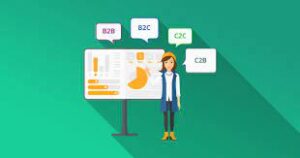
What does B2C stands for is, “Business-to-Consumer,” referring to transactions or interactions between a business and individual consumers or end-users.
What is b2b vs b2c
B2B (Business-to-Business) refers to transactions or interactions between businesses, while B2C (Business-to-Consumer) refers to transactions or interactions between a business and individual consumers or end-users.
Direct-to-consumer vs b2c
Direct-to-consumer is a business model in which products are sold directly to consumers without intermediaries, while B2C refers to transactions between businesses and individual consumers.
DTC vs B2C difference: The main difference is that D2C refers to selling products directly to consumers without intermediaries, while B2C involves transactions between businesses and consumers.
DTC brands are companies that sell their products or services directly to consumers without relying on traditional retail channels or intermediaries.
What is B2C e-commerce?
- B2C vs B2B ecommerce: B2B e-commerce involves selling products or services to other businesses, while B2C e-commerce focuses on selling to individual consumers.
What are the best B2C vs D2C examples?
Here are some of the largest B2C organizations in India:
- Hindustan Unilever
- Dabur
- Flipkart
- Croma
- Reliance Digital
- DMart
- Lenskart
- boAt
- Patanjali
- Mamaearth
- Sugar Cosmetics
- Xaomi
- realm
What are the top D2C brands?
Some of the top D2C brands include Warby Parker, Casper, Dollar Shave Club, Glossier, Allbirds, and Everlane, among others and Some of the top DTC brands include Warby Parker, Casper, Dollar Shave Club, Glossier, Allbirds, and Everlane, among others.
What is a d2c company?
A D2C company is a business that sells its products or services directly to consumers, bypassing traditional intermediaries like retailers, distributors, or wholesalers. Some of the top D2C companies include Warby Parker, Casper, Dollar Shave Club, Glossier, Allbirds, Everlane, Bonobos, Away, Harry’s, and Quip, among others.
Direct-to-consumer vs b2c, explain
Direct-to-consumer (D2C) refers to companies selling products directly to consumers without intermediaries, while B2C (Business-to-Consumer) involves selling through intermediaries like retailers. D2C bypasses intermediaries, offering more control and direct customer relationships, and the D2C business model is where organizations sell products directly to the end customer through their own sales channel.
See More:
- How to Buy B2B email lists | 20 Best B2B Mailing Lists
- What are SaaS Companies with b2b SaaS Examples | Best Types
- B2C vs D2C Marketing: Which One Right for You: Best Examples

